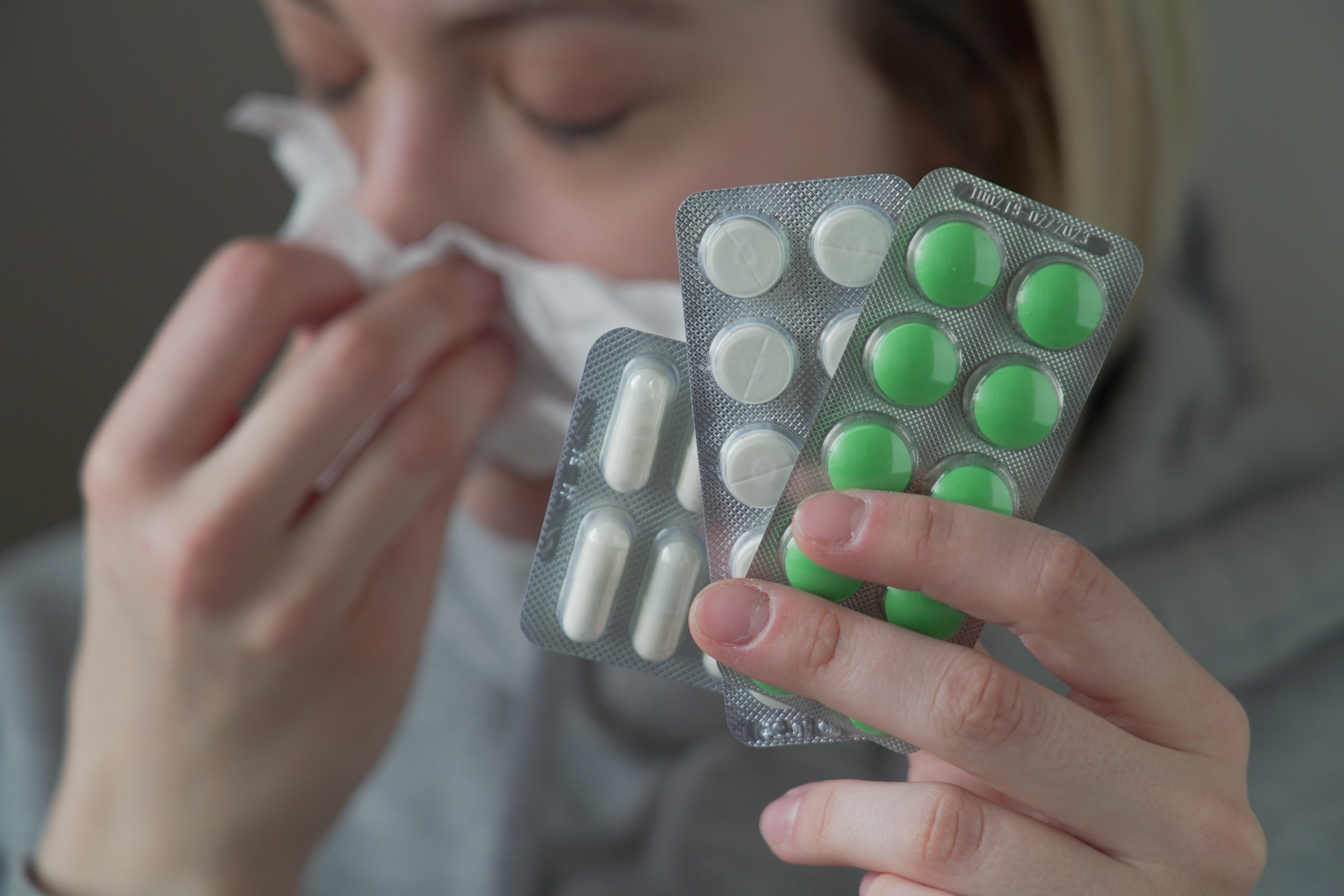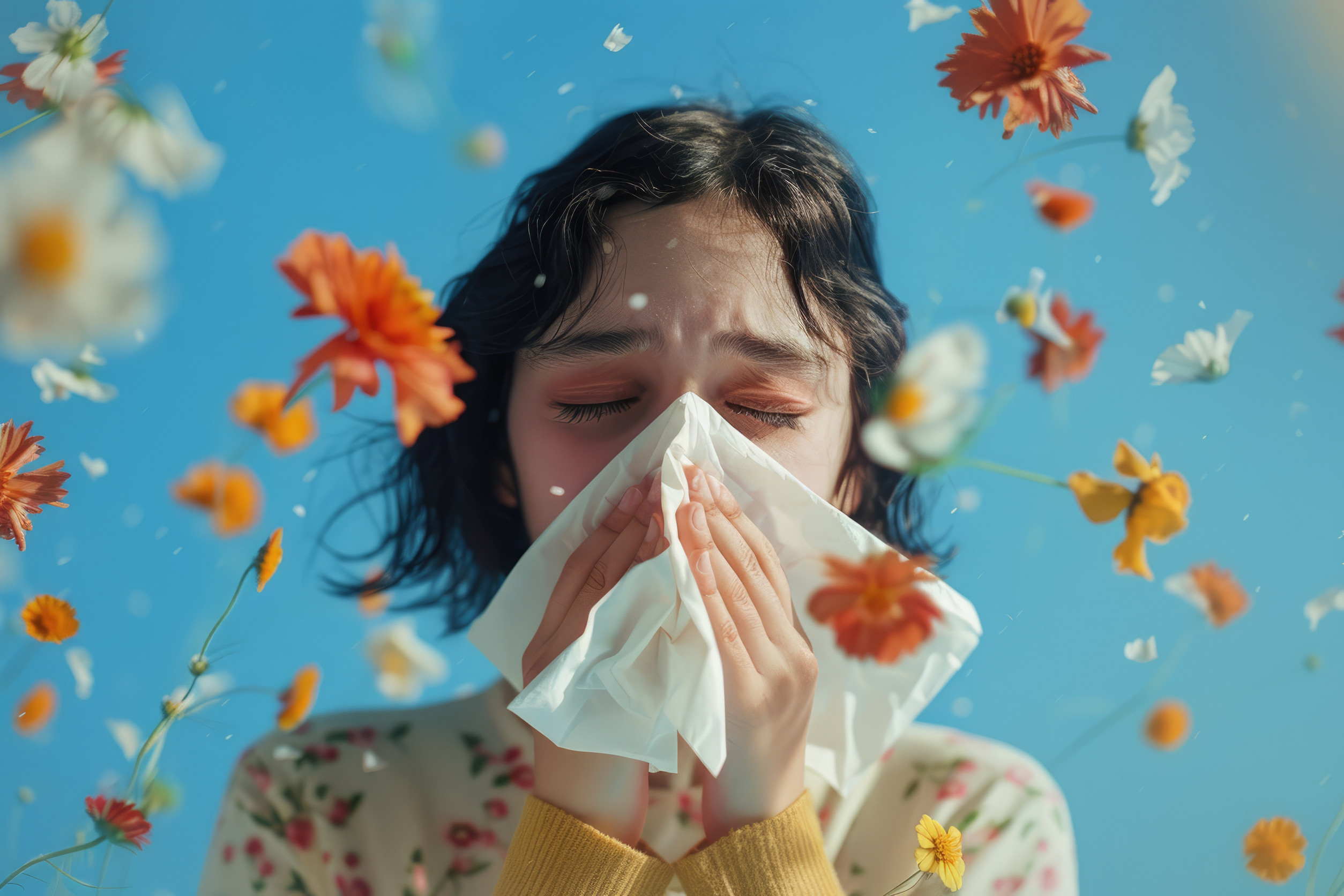
Allergies are frustrating enough without the added confusion of choosing the wrong remedies. While millions rely on over-the-counter solutions for itchy eyes, sneezing, and congestion, not all products are created equal. In fact, some popular treatments can quietly make symptoms worse—or spark entirely new health concerns.
The problem isn’t just ineffective relief; it’s hidden side effects, dependency risks, and counterintuitive ingredients. Understanding which allergy products may be doing more harm than good is the first step toward actually feeling better.
1. Nasal Decongestant Sprays
Nasal sprays can offer near-instant relief, but the rebound effect can make congestion worse over time. Using them for more than three consecutive days often leads to “rhinitis medicamentosa,” a condition where the nose becomes dependent on the spray to stay clear. The lining of the nasal passages swells in response, creating a cycle of overuse and worsening symptoms. Some sprays also contain preservatives that can irritate nasal tissues with prolonged use. What starts as a quick fix can quickly spiral into a chronic problem that’s harder to treat than the original allergy.
2. Antihistamines That Cross the Blood-Brain Barrier
Older antihistamines like diphenhydramine are widely used but come with unwanted side effects, including sedation and cognitive impairment. These drugs cross the blood-brain barrier and affect central nervous system function, which can cause drowsiness, memory issues, and slowed reaction times. Long-term use has even been linked to increased risk of dementia in older adults. Despite these risks, they remain easily accessible and are sometimes overused without proper guidance. There are safer alternatives, but many still reach for the classics, unaware of the neurological toll they may be taking.
3. Scented Air Purifiers and Allergy Candles
Products labeled as “allergy-friendly” or “air-cleaning” often contain fragrances and chemicals that can irritate sensitive airways. Scented candles, air fresheners, and some ionizing air purifiers release volatile organic compounds (VOCs) that worsen indoor air quality. These compounds can trigger asthma, headaches, and even respiratory inflammation in people with allergies. While marketed as relief, they can be subtle sources of chronic irritation. The clean scent may be appealing, but it often masks a recipe for worsened allergic responses.
4. Herbal Allergy Supplements
Herbal supplements promise natural relief, but they can come with unpredictable effects and limited regulation. Ingredients like butterbur and stinging nettle have shown some promise, yet many products lack quality control or contain undisclosed fillers. People with ragweed allergies, for example, may unknowingly worsen symptoms by taking related plant-based extracts. These supplements can also interact poorly with prescription medications, creating unintended side effects. The “natural” label doesn’t guarantee safety, especially when dealing with complex allergic conditions.
5. Overused Eye Drops for Itchy Eyes
Redness-relieving eye drops can temporarily shrink blood vessels, but frequent use often causes rebound redness and irritation. These vasoconstrictors don’t treat the underlying allergic reaction—they simply mask it. Continued use may lead to dependency and increased sensitivity, making eyes feel worse in the long run. Some formulas also contain preservatives that can irritate the eyes with repeated exposure. The short-lived clarity they offer can become a gateway to chronic discomfort and recurring symptoms.
6. Allergen-Proof Bedding with Chemical Coatings
Dust-mite-resistant bedding sounds ideal for allergy sufferers, but some products use chemical coatings that release fumes or irritants. Polyurethane and other synthetic barriers may off-gas over time, especially when new. These emissions can exacerbate respiratory issues, particularly in people already dealing with asthma or chemical sensitivities. While they block dust mites, they may introduce a different kind of irritant into the bedroom environment. In trying to solve one problem, they can quietly create another.
7. Allergy-Relief Skin Creams with Steroids
Topical corticosteroids are effective for itching and rashes, but long-term use can thin the skin and cause other complications. Over-the-counter versions may seem harmless, yet prolonged application—even on small areas—can lead to irritation, discoloration, and skin fragility. Some users develop steroid dependency, where symptoms flare worse after stopping the cream. Additionally, these creams can suppress the skin’s natural immune response, making it more vulnerable to infections. Relief often comes at the cost of long-term skin health if not used responsibly.
8. Allergy Pills with Unnecessary Multi-Symptom Ingredients
Many allergy pills include extra ingredients meant to treat unrelated symptoms, like cough or pain, leading to overmedication. These combination formulas often contain decongestants, painkillers, or sleep aids that aren’t necessary for simple seasonal allergies. Taking more than needed increases the risk of side effects like high blood pressure, drowsiness, or stomach upset. People may unknowingly expose themselves to unnecessary risks when a single-ingredient antihistamine would suffice. Multi-symptom products can confuse the issue rather than clarify the solution.

Rethinking Relief
Allergy relief shouldn’t come with hidden trade-offs. Yet too often, popular products cause new problems or worsen the ones they’re supposed to treat. Being informed about the potential downsides allows for smarter choices and better outcomes. Allergy care isn’t one-size-fits-all, and what’s marketed as help can sometimes be the hidden culprit.
Have you had a surprising experience with a so-called allergy remedy? Share your thoughts or drop a comment to help others navigate the noise.
Read More
10 Common Medications That Doctors No Longer Trust
10 Labeling Tricks That Hide Unhealthy Ingredients
The post 8 Allergy Products That May Be Causing More Harm Than Relief appeared first on Everybody Loves Your Money.







